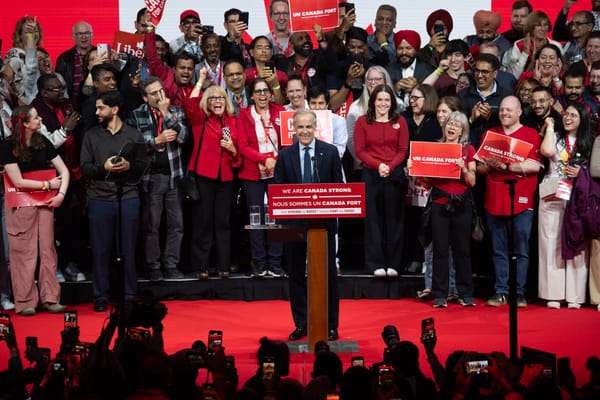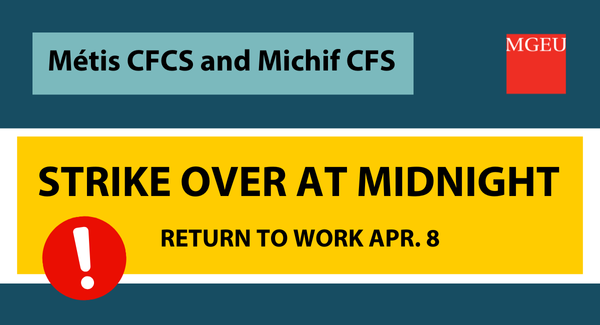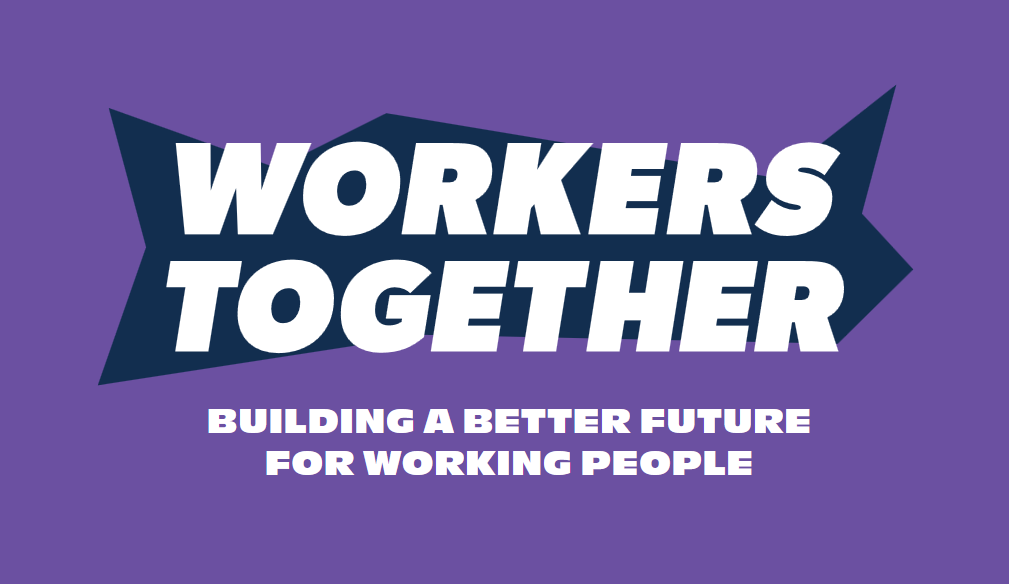Over the past several months, employers have been nearly unanimous in their calls to ramp up the number of immigrants and temporary foreign workers coming to Canada. Public discourse about the so-called ‘labour shortage’ has been consistently dominated by employers, and greater access to foreign workers has been their primary demand.
In response to this employer pressure, in April the federal government eased restrictions on firms utilizing the Temporary Foreign Worker Program (TFWP) as part of its strategy to alleviate ‘labour shortages.’ Recent changes to the TFWP increase the number of temporary workers permitted into Canada across the wage scale and streamline the employer application process. Employers can now hire up to 20 per cent of their low-wage workforce through the TFWP (an increase from the previous cap of 10 per cent). In certain sectors, such as food manufacturing, accommodation and food services, and some parts of the health care sector, up to 30 per cent of employees can be temporary foreign workers.
Prime Minister Justin Trudeau, who once called for dramatically scaling back the TFWP, has instead doubled down on expanding the program, despite widespread employer abuse. According to Matt Lundy and Vanmala Subramaniam at The Globe and Mail, the number of workers from abroad holding temporary work permits in Canada had grown 92 per cent since the Trudeau government won the election in 2015, and by 600 per cent since 2000 (when those arriving through the TFWP and the International Mobility Program are combined).
Although work in the TFWP can lead to permanent residency, in many cases it doesn’t. Workers who are unable to secure permanent residency or citizenship must leave Canada after their work visas expire. Because of the restrictions placed on those in the program — most notably, the ‘closed’ work permit whereby workers are tied to a single employer — labour standards violations are common yet difficult for government regulators to detect and rectify. The very parameters of the program render workers vulnerable to abuse.
As of late, however, there seems to be somewhat of a public relations push coming from the employer class aimed at putting a humanitarian gloss over rampant exploitation of immigrant and migrant workers across North America. This is most apparent in the area of support for refugees. Perhaps to guard against being perceived as rapacious for cheap, immigrant labour, major corporations are publicly positioning themselves as supporters of refugees.
The Tent Partnership for Refugees, a nonprofit organization founded by Hamdi Ulukaya, chairman and CEO of yogurt brand Chobani, is perhaps the most visible example of the corporate push to appear progressive on immigration. The Tent Partnership’s “member list” is a veritable who’s who of corporate America. Yet member corporations’ policies and practices when it comes to immigrants and labour should raise eyebrows.
Many of the Tent Partnership’s members regularly donate considerable sums of money to Republican Party candidates and elected officials in the United States known for their anti-immigrant and anti-refugee positions and policies. For example, a prominent Tent Partnership member is the Blackstone Group, one of the largest private equity firms in the world. Its CEO, Stephen Schwarzman, also happens to be one of the largest individual donors to the Republican Party, giving tens of millions of dollars to GOP candidates running in Senate and House congressional races, despite much of that party openly campaigning on anti-immigrant policies.
Tech giants Uber, Lyft and Doordash are also Tent Partnership members. All of these firms engage large numbers of immigrant, refugee and other racialized workers, while fighting vociferously across countries and jurisdictions against employee status for drivers and couriers. By misclassifying their workers as “independent contractors,” these tech giants deny drivers and couriers minimum employment standards, workers’ compensation and unemployment insurance protections, while also preventing drivers from joining or forming unions and engaging in collective bargaining. Gig economy firms also evade millions of dollars in payroll taxes and employer contributions through such bogus independent contractor schemes.
Many Tent Partners have even more objectionable records of labour rights violations and worker mistreatment, however. For example, Amazon is now the Tent Partnership’s largest member, in terms of both company revenue and workforce size. As is now well known, Amazon has poured millions into union-busting activity across North America and has been cited by the U.S. National Labor Relations Board for infringing on workers’ rights to freely form a union in New York. The company is also a systemic violator of minimum labour standards.
Additionally, through its collaborative business partnership with Palantir Technologies, Amazon’s cloud computing infrastructure enables the sprawling deportation machinery and investigatory power of U.S. Immigration and Customs Enforcement (ICE), particularly along the southern border with Mexico. It’s no exaggeration to say that Amazon bears a direct responsibility for the explosion in the number of deportations under the Trump administration.
Fast food brands such as Burger King and Taco Bell are also Tent Partnership members, despite the fact that these employers frequently resist worker and union efforts to raise pay and improve working conditions in fast food. A recent glaring example came in California, where fast food giants attempted to impede a bill meant to bring a form of sectoral bargaining to the state’s fast food industry. Starbucks, also a prominent Tent member, is of course engaged in a North America-wide union-busting campaign against its workers and their union allies in Workers United in the U.S. and the United Steelworkers here in Canada.
Perhaps most troubling, however, is the message underlying the Tent Partnership’s approach to refugees and labour. By placing such a strong emphasis on refugees and immigrants as potential workers, Tent and its members frequently appear to value refugees primarily for their labour power. This is exemplified in the organization’s mission statement and what has become a stock phrase from founder Ulukaya: “the minute a refugee gets a job is the minute they stop being a refugee.” Yes, a good paying job with regulatory (or better yet, union) protections is an important component to resettlement and integration for people fleeing wars, as well as economic, environmental and other crises; but tying the worth of refugees to their labour productivity — to the potential “benefits” that the business community could realize from accepting greater numbers of refugees — is grotesque.
During the Venezuelan refugee crisis in 2019, for example, the organization saw an opportunity to assist with “integration” through employment and provided guidance on how “businesses can help.” In making their pitch to employers, the Tent Partnership collaborated with the U.S. Chamber of Commerce to highlight the advantages of hiring refugees.
As Tent Partnership executive director Gideon Maltz argued, “We’ve seen time and again that businesses create opportunities for refugees to contribute economically and become productive members of their host communities when they take steps to hire refugees, integrate them into their supply chains, invest in refugee entrepreneurs, and deliver goods and services to refugee customers. And this is also good for business — refugees are some of the most highly motivated and loyal employees, and research shows that they have higher retention rates than non-refugee employees.”
Of course, it is precisely the vulnerability of refugees, as well as other migrants and immigrants with precarious citizenship statuses, that renders them such “loyal employees.” Their “deportability” and often conditional residency in their host countries creates an environment ripe for employers to exploit them as workers. It’s exceedingly difficult to speak up, fight back and advocate for your employment rights when doing so can put your immigration status at risk.
The Tent Partnership’s messaging around refugees and immigration is a variation on a larger theme in corporate North America: multinational corporations increasingly utilize social justice rhetoric to portray a progressive public image, while at the same time exploiting labour, supporting anti-labour politicians, and lobbying for legislation that undermines the economic well-being of the working class more broadly. In the case of the Tent Partnership, in particular, this includes allowing member corporations to appear publicly supportive of refugees while directly backing politicians who attack them.
Organizations such as the Tent Partnership — even if their founders imagine them to be a force for good in the world — are all too often a marketing cover for profit-hungry corporations. At the end of the day, capital has one concern: to grow its profit. Any good that member corporations might do through the Tent Partnership will be more than overshadowed by their drive for profit and the labour exploitation it entails.







